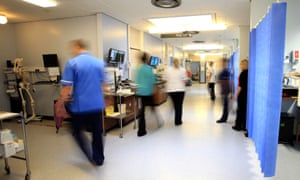But is intravascular photoacoustic (IVPA) imaging better?
Or sodium fluoride that had been tagged with a tiny amount of a radioactive tracer and then using PET scans?
I expect your doctor and hospital should be monitoring and updating their protocols to identify stroke risks from unstable plaque. That is if your doctor and hospital are not incompetent. Do they even know about IVPA and sodium fluoride tracing? A fucking protocol is needed rather than thousands of doctors trying to analyze stuff they know nothing about.
MRI scan that can predict stroke risk has 'promise to save lives'
Scientists at Oxford University develop non-invasive technique to measure amount of cholesterol in carotid plaques
Haroon SiddiqueWednesday 23 August 2017 19.01 EDT
A new type of MRI scan can predict the risk of having a stroke, researchers have said in a study.The non-invasive technique, developed by scientists at the University
of Oxford, predicts whether plaques in the carotid arteries are rich in
cholesterol and therefore more likely to cause a stroke. Carotid arteries supply the brain with blood. The rupture of fatty
plaques can block them and possibly starve the brain of oxygen, causing
potentially debilitating and life-threatening strokes. A quarter of the more than 100,000 strokes in the UK each year are caused by carotid plaques. Dr Luca Biasiolli, the co-author of the study, said: “When
someone goes to hospital having suffered a minor stroke, it’s vital
that doctors know whether the patient might be at risk of a further
stroke, which could be fatal. “Being able to quantify cholesterol in carotid plaques is a really
exciting prospect, as this new MRI technique could help doctors to
identify patients at higher risk of stroke and make more informed
decisions on their treatments.” The study, published in the journal JACC: Cardiovascular Imaging
on Thursday, created a test that produces a quantitative result,
whereas traditionally the risk of stroke is measured by the size of the
plaque in the carotid artery. At present, if a plaque is deemed too big
it is removed, but the researchers say fatty plaques that are not large
yet have a high risk of rupturing can be missed.
Prof Sir Nilesh Samani, medical director at the British Heart Foundation, which part-funded the study, said: “This exciting research opens up the possibility that in the future we may be able to more accurately identify people with carotid plaques that are likely to rupture and cause a stroke.
“These patients can then be treated earlier – for example, with surgery to remove the plaque – while others might be spared surgery altogether. More research is now necessary before this advance can come into routine clinical practice. However, if successful this technique has the promise to save lives.”

No comments:
Post a Comment